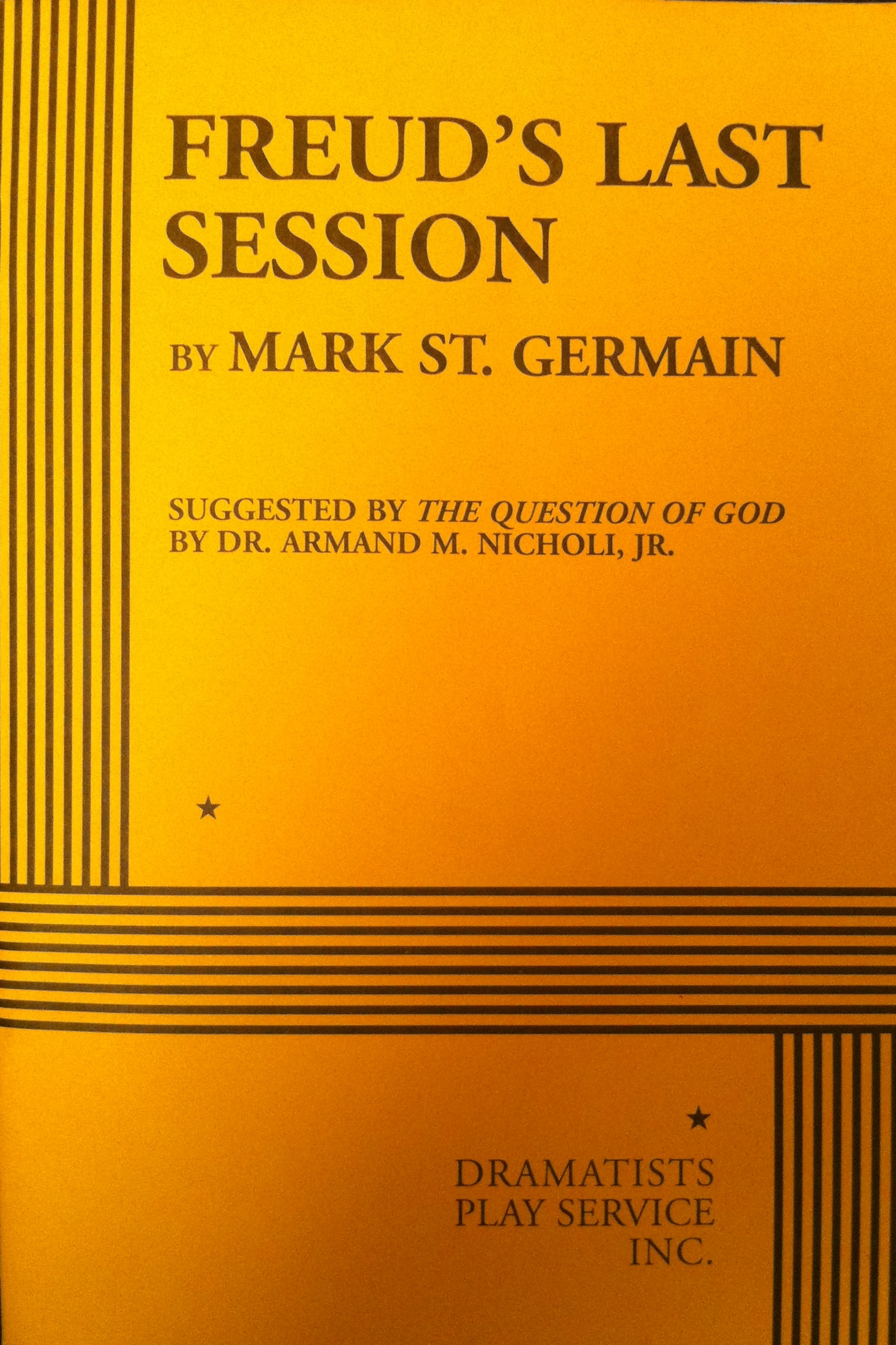I’ve already blogged once about reading Freud’s Last Session, a two person play that is an extended argument between C.S. Lewis and Sigmund Freud, but now I’ve gotten the chance to see it performed. (And it looks like it’s running through May at the New World Stages in NYC, if anyone fancies seeing it.)
When I saw it, I tried to keep score in my head of who was winning or who had the upper hand, since I was particularly interesting in how the changing dynamics of the debate were mirrored in the staging, However, there are a number of beats where I simply had no sympathy for the argument on either side. As I wrote last time, I don’t buy Lewis’s argument that every desire we have must be satisfiable, and I think Freud’s problem-of-evil attacks aren’t unanswerable.
But there was one moment in the show where the balance seemed to shift suddenly and dramatically in favor of Lewis. Lewis is trying to set to catch Freud in his Lunatic, Liar, Lord trilemma, when Freud rejects the premise completely:
FREUD: I don’t claim Christ to be a great teacher. He failed at teaching as totally as he did at divinity, His teachings are naive and destructive… Which of Christ’s “teachings” are even realistic? Love our neighbor as ourselves? It’s a foolish impossibility! Turn the other cheek? Should Poland turn the other cheek to Hitler? Should they love their neighbors as German tanks crush their homes? Or maybe they should follow Christ’s example and martyr themselves, since the meek will inherit the earth. Of course they will, they’ll be buried beneath it! Do you think it coincidence that Jesus demands his followers must be like children to enter Heaven? It’s because man has never matured to face that he is alone in the universe, and religion makes the world his nursery!
Of all criticisms to make of Jesus’s teachings, “They’re too ambitious” seems like a pointless one for an atheist to make. And it’s particularly baffling paired with “Christianity is a security blanket.” Freud’s objections fall right into a model Chesterton described — accusing Christianity of contradictory excesses.
How can unachievable goals be the comfortable option? And what does Freud propose instead — a complacency about our own failure? If Jesus is teaching the correct things, but they’re untenable in our secular world, then something needs to be radically reconfigured. Freud (and I) don’t have to bite the bullet and become Christians, but, if the world makes it impossible to be good, our primary goal should be getting the world back on track.
Maybe you do that work through philosophy, so people can understand or amend their intuitions. Maybe you work in cognitive-behavioral therapy, where the focus is on rewiring your behaviors, not just processing feelings. Maybe you join up with the people at Less Wrong and try and overclock the human mind. Any of these options are better than despair or mocking the people who are pointing the world is not what it ought to be.
Asking us to be more than we are is hard a teaching, but, especially in an atheist world view, it seems like a necessary one. Any moral progress I make will be cut off at some arbitrary point by death. I can’t expect to progress to some moral apotheosis where all my bad habits are unlearned. I will assuredly fall short of my telos, so I like to approach the problem in the alcoholics do: one day, one choice at a time, trying to not let this moment be one of my failures.














